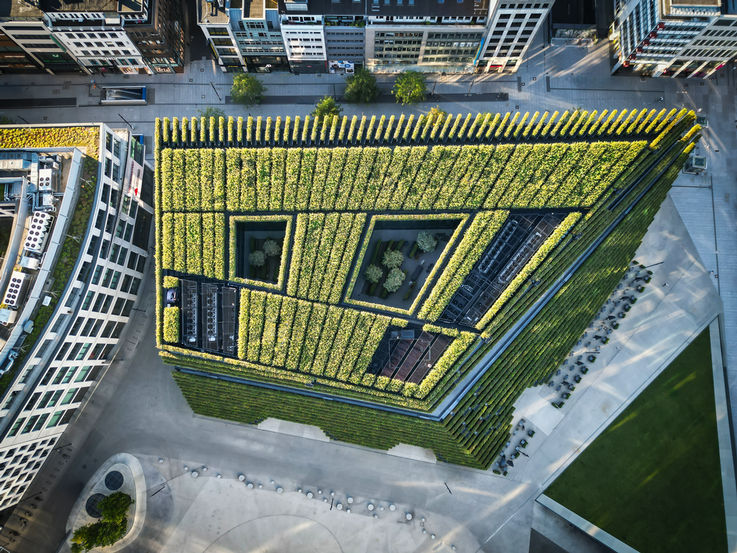For a liveable future: Sustainability is a matter close to our hearts
We see sustainability as a fundamental value and social obligation – not as a strategic measure: for our environment, our employees, customers, and for our company. Sandra Alber, Chief Officer Legal& Finance, reports on the sustainability activities GEZE is pursuing.
Creating prospects for the future
For us, simply complying with legal regulations is not enough. We endeavour to achieve more: We want to give employees and customers a positive perspective and ensure a shared future.
If we successfully establish sustainability at GEZE as part of our behaviour and corporate culture, this would provide a major benefit: It makes our processes and products more environmentally friendly.
Responsible, sustainable action will be a door opener for us to provide a positive outlook for employees and customers, in addition to securing our common future.
Sandra Alber, Chief Officer Legal& Finance at GEZEOur activities and focal points for environmentally-conscious action
Our sustainability management is based on three pillars:
1. Regional responsibility in the global network
2. Climate and environment
3. Sustainability along the entire product life cycle
The responsible use of natural resources is an important component. In our manufacturing processes, we have been focussing our attention on aspects such as energy efficiency for some time. Here, for instance, GEZE only uses green electricity at its German locations. Increasingly, we are also working toward implementing this in our products throughout their entire product life cycle.

Green roofs are an essential part of climate protection: the plants absorb CO2 and help clean the air. © Jürgen Biniasch / GEZE GmbH
CO2 balance as the basis for sustainability management
Where do GEZE’s greenhouse gas emissions occur, and how high are they? A CO2 balance sheet, based on the GHG Protocol (Greenhouse Gas Protocol), was drawn up for GEZE Leonberg. This greenhouse gas protocol is a global standard and specifies methods for determining the generated greenhouse gas emissions. With this data, we can better target our sustainability management and continue reducing our carbon footprint.
How we measure our contribution to climate change
In our carbon footprint, we determined the CO2 emissions generated by GEZE itself – through internal combustion processes, for example, or through the GEZE vehicle fleet (Scope 1 emissions). Secondly, the indirect emissions, such as electricity, water vapour or district heating (Scope 2 emissions), were determined. These are generated and “purchased” outside our company, but consumed at GEZE.
GEZE goes one step further

We measure all emissions that occur along our value chain, such as business and official travel by employees. © Getty Images
For us, it is also important to increase sustainability of product use and the end-of-life treatment of sold products. For this reason, we voluntarily measure all emissions that occur along our value chain. For instance, these Scope 3 emissions are business and official trips by employees. They also include emissions that are outside GEZE's sphere of influence, such as transport and the use and recycling of GEZE products. Although this makes reducing emissions more challenging, this data also gives us the opportunity to develop future-oriented measures to reduce these emissions in the long term.
What we have already achieved
GEZE only uses green electricity at all its German locations. In addition, an efficient combined heat and power plant in Leonberg is operated with natural gas. This achieves low Scope 1 and 2 emissions (2.81 t CO2e) per employee.
In addition, GEZE offsets the natural gas used for the CHP and the fuel for company cars.
What we still want to achieve
Even though GEZE is already active in all criteria for climate-friendly business: CO2 emissions are to be made even more transparent, so as to reduce them further. Therefore, as an example, the CO2 balance is currently being extended to all subsidiaries with a focus on the production sites. Individual measures to improve the supply chain’s ecological footprint and its use of products are also planned.

What we are currently working on:
- We are integrating sustainability criteria into product development and supplier selection.
- We are preparing ourselves for the reporting obligation (Sustainability Report) and for the Supply Chain Due Diligence Act.
- We are strengthening internal and external sustainability communication.
- We are implementing an energy and environmental management system.
- We are registering various corporate and product certificates.
- We are carrying out a number of global social activities in the corporate environment.


